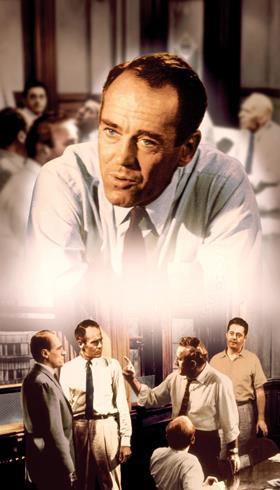Reeling in legal themes from the movies
Law at the Movies: Turning Legal Doctrine into Art
Stanley Fish
£25, Oxford University Press
★★★✩✩
Stanley Fish is a well-known US public intellectual. He originally gained academic fame as an English professor specialising in Milton’s Paradise Lost, from which he developed his own variant of the reader-response theory of literary interpretation. He went on to apply that theory to other fields, including law.
Although he never gained a legal qualification, he has published extensively in the field, chiefly in jurisprudence, interpretation and human rights. He has also written widely on popular culture, including a treatise on the 1960s television series The Prisoner.
In his latest book, he has combined two of those interests by writing a critique of 17 well-known films which have legal processes and concepts at the heart of their plots. He has chosen not only obvious examples, such as 12 Angry Men, Sidney Lumet’s classic film about a jury trial, but also those less overtly legally themed, such as the westerns The Man Who Shot Liberty Valance and High Noon, where legal officers are forced to take (or fake) vigilante actions because they find themselves in towns where the rule of law is absent and a Smith & Wesson beats a Royal Flush.
Professor Fish does not attempt any overarching theory of law. Instead, he looks at a number of disparate legal concepts – criminal procedure, the rule of law, free speech – and how they are dealt with in each film. He challenges received views. He argues, for example, that the evidence in 12 Angry Men is not comprehensively dismantled by Henry Fonda’s juror (pictured), since the defendant could still be guilty despite the supposed flaws in the case (though the requirement of beyond reasonable doubt would suggest the right verdict was indeed acquittal).

Professor Fish has an engaging writing style, if a little pretentious at times. He makes many incisive points, but also some rather flimsier arguments. His attempt to conflate religious beliefs with rationalism in his essay on Inherit the Wind is unconvincing, as is his scepticism regarding free speech when discussing The People vs Larry Flynt.
Yet such is to be expected – and doubtless was expected by Professor Fish himself, who seeks to be a provocateur rather than a purveyor of a unified theory of law (or movies). The book is a stimulating read accordingly.
James Wilson is an independent legal author. His most recent book is Lord Denning: Life, Law and Legacy (Wildy, Simmonds & Hill, 2023)































No comments yet